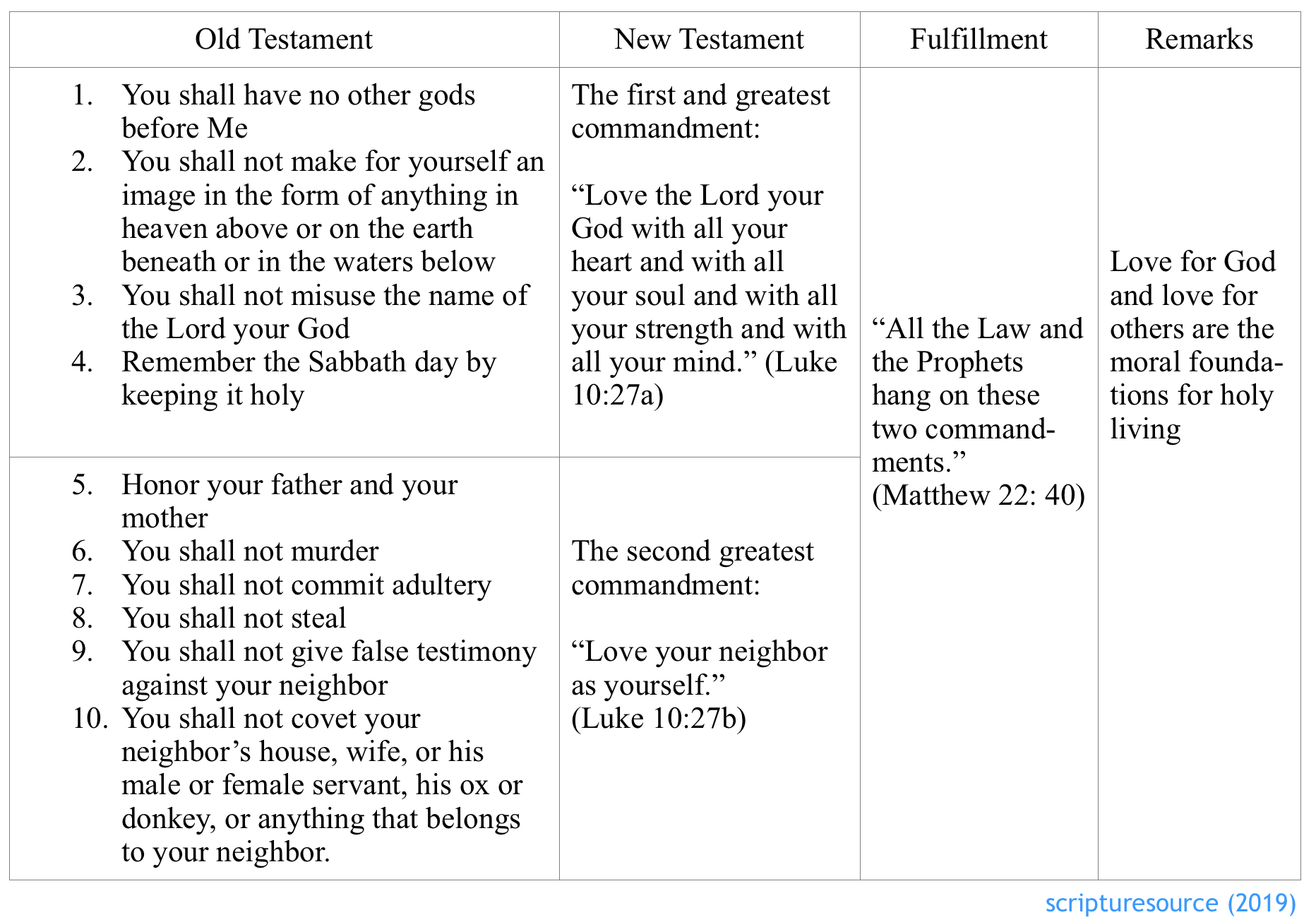The Law of God
The Law was given to the Children of Israel, and everyone else, so that the people of God will live according to the standards set by God. The Law reveals God’s will for His people, which demands inner spiritual righteousness and the practice of outward justice and holiness. The basic principles of the Law of God are to love and obey God, worship Him alone, and to love and care for one another.
The Complete Law of God may be divided into three interrelated groups: The Moral Law, the Civil Law and the Ceremonial Law.
- The Moral Law (Exodus 20:1-17): The Ten Commandments, known as ‘The Decalogue,’ are the condensed form of the entire Moral Law. These are written and given by God to the Children of Israel through Moses as eternal rules for righteous living. The Moral Law sets God’s standards for His people’s lives in the wilderness as well as in the Promise Land. It has two levels: 1) Man’s obligations to God, which includes, love and devotion, adoration and worship and holy living, etc., and 2) Man’s obligations to other men, which includes honoring parents and honoring other fellow-humans
- The Civil Law (Exodus 21:1 – 23:33): These are the rules of God for His people’s legal and social life as a nation. It gives directives for daily social relationships, administration of justice, property rights, training children, and punishment for criminals
- The Ceremonial Law (Exodus 24:12 – 31:18): The ceremonial Law reveals the divine standard for worship and adoration of God. These include the instructions for the construction of the tabernacle, priestly dress, proper priestly functions at the tabernacle, duties of the Levites, guidelines for sacrifice, offerings, and feasts.


